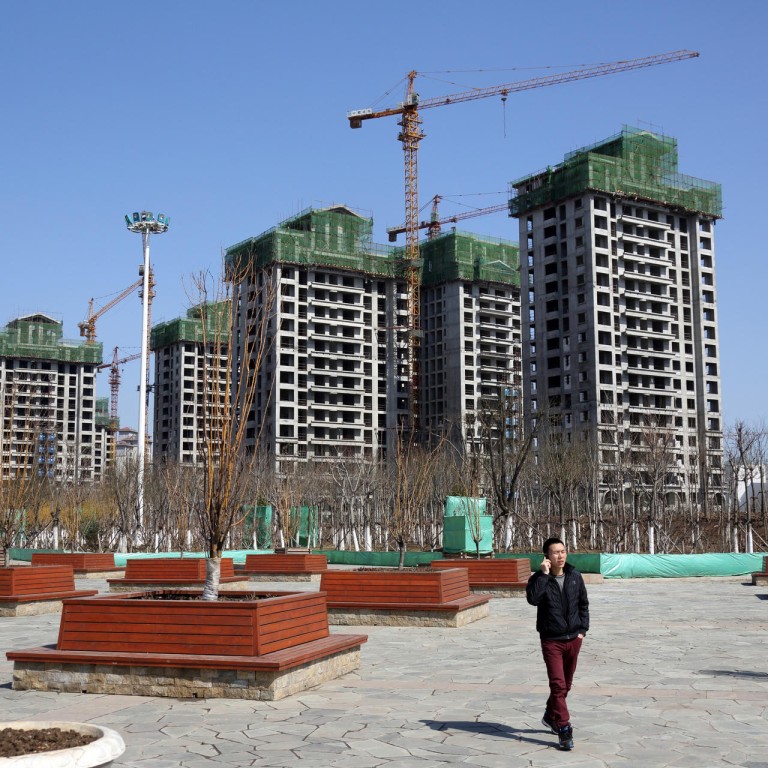
Foreign investors cool on Chinese real estate
The proportion of foreign investment in the mainland property market fell to 0.08 per cent in the first two months of this year, the lowest in at least a decade, according to data from the National Bureau of Statistics.
Foreign activity in the mainland's real estate market has hit a 10-year low as risks rise while restrictions remain.
The mainland's real estate market is dominated by domestic investment, but any moves by foreign investors make media headlines and affect sentiment.

"I don't think foreigners are losing their interest," said David Blumenfeld, a partner focusing on real estate at global law firm Paul Hastings. "But people are becoming more realistic" as economic growth slows and transitional challenges loom.
During the double-digit percentage growth in China's economy in the past three decades, anyone investing in the real estate market made a fortune regardless of what they bought and how much they knew.
"A rising tide raises all boats. But it's not rewarding people who are adding value," said Blumenfeld, who advises foreign banks and investors in China. He came to the country in 2005 and now splits his time between Shanghai and Hong Kong.
Many of the transactions he saw during his first few years were foreigners buying existing buildings that had long leases and generated stable revenues.
"Those transactions are harder and harder to do and to make money out of," Blumenfeld said. "Investors have to take more risk and begin to do more and more development deals."
China has since tightened its scrutiny of foreign investment in real estate - requiring foreign firms to set up a mainland entity for each project and put up higher amounts of registered capital, and barring borrowing from offshore shareholders or lenders - as part of its efforts to fight runaway housing inflation.
Data from the statistics agency showed foreign investment remained below 1 per cent of the real estate market after the global financial crisis. But even in its heyday, foreign participation had never exceeded 2 per cent of total sources of funds into the sector, which affects dozens of other industries in the world's second-largest economy.
Some investment banks, including Goldman Sachs, left the mainland's real estate market after the global financial crisis. But other foreign investors - including sovereign wealth funds, pension funds and private equity funds - remain, and some are increasing their exposure to China's property market, said Xu Weibin, China leader and partner at EC Harris, a global consultancy for building and property assets.
"No one is expecting China GDP to grow 10 per cent," Xu said. "But a 7-8 per cent GDP increase is still a rate many other countries would die for."
As the mainland weans itself off its reliance on exports and steps up efforts to boost domestic consumption, foreign interest in the logistics sector is growing, as it is not regarded by the government as real estate investment and is thus subject to less restriction.
For example, the US private equity firm Carlyle and The Townsend Group, a US property consultancy, announced a strategic partnership last year with Shanghai Yupei to develop and operate 17 logistics warehouses in China.
Blumenfeld said as China moved towards a freer currency regime, the real estate market could embrace another boom, although the yuan would not supplant the US dollar soon as a reserve currency for the world.
"China has no place to go but to continue to open up the convertibility of the yuan," he said.
Last week, Beijing expanded the yuan's daily trading limit to 2 per cent above or below a midpoint set by the central bank, from 1 per cent previously.

